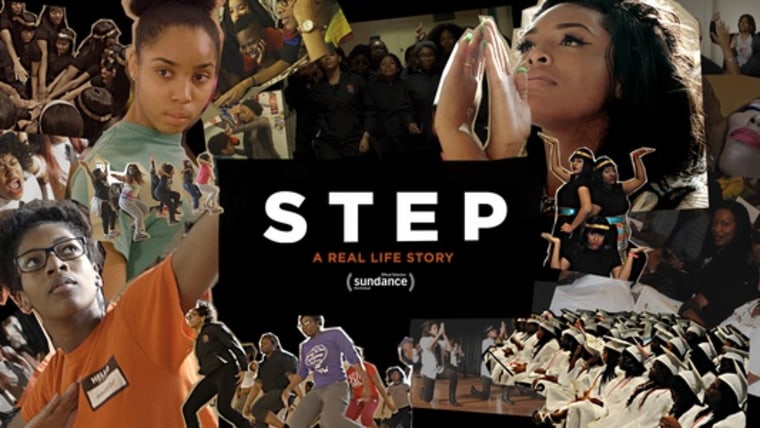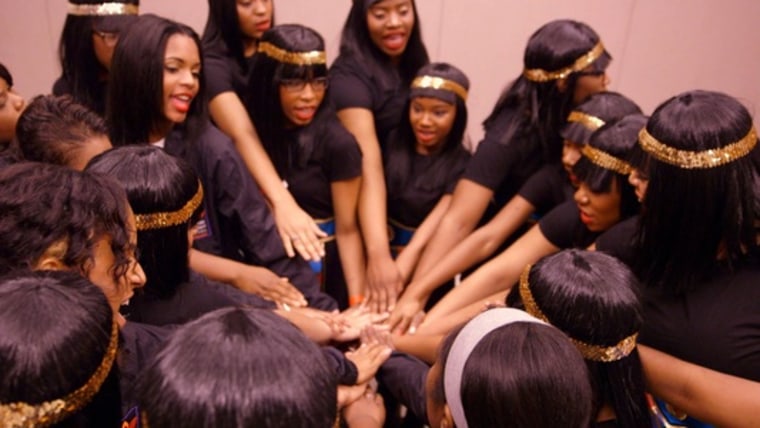Black Girl Magic underscores the many ways Black women like Michelle Obama slay and Olivia Pope save. It also highlights how Black girls like Blessin Giraldo, Cori Grainger, and Tayla Solomon overcome suspension, poverty, and other barriers to education. Barriers that would be higher if not for the US Department of Education's Office of Civil Rights.
National narratives suggest that Black women are thriving in spite of considerable barriers. Which is certainly true. But the whole truth, however, is that Black women and girls are also susceptible to threats that too often go unnoticed or unaddressed.
The fact of the matter is, the behaviors and traits that enable Black women to be successful in industries where they are underrepresented — to innovate and identify solutions to seemingly intractable problems and to support families, communities and attempt to save our country — are the same behaviors that result in black girls being suspended and expelled from school.
Too many Black girls are pushed out of the very spaces where they are supposed to acquire the skills, relationships and experiences needed to succeed in school and in life. Nationally, the rate of expulsion for Black girls K-12 is six times higher than their white classmates. As we seek ways to support Black women and girls it is important that we disrupt negative trajectories for Black girls caused by bias.
“STEP," directed by Amanda Lipitz, tells the story of the Lethal Ladies of Baltimore, a step team founded by the inaugural class of the Baltimore Leadership School for Young Women. The documentary chronicles the challenges and demonstrates the magic that Black girls face and generate in the pursuit of safety, support and success against the backdrop of Baltimore, Maryland in the wake of the murder of Freddie Gray.
STEP focuses primarily on three senior members of the step team. Founder and captain, Blessin Giraldo, a natural born star who possesses the “it” factor that makes it difficult to turn away from her and easy to feel her passion. Cori Grainger, the straight-A introvert (she earns five full-ride college scholarships) who uses step to push her beyond the limitations imposed both by herself and the world around her. Tayla Solomon, an only child of a single mother who attends step practice in support of all of the girls.
STEP highlights opportunities for all caring and concerned adults to be advocates for Black girls.
This opportunity is demonstrated powerfully in a conversation between Coach G–the girls’ step coach–and Blessin. Coach G tells Blessin that she too struggled to find the traditional linear path to success. Coach G not only talks about success, but also about the importance of the struggles that sharpened her skills.
Coach G’s honesty and vulnerability, seldom practiced by adults, helps Blessin to understand that she was not the first student in the history of education to struggle with earning grades that demonstrate her brilliance and intelligence. Coach G affirms for Blessin that adversity is a step towards success.
Related: ‘Pushout’ Aims to Stop Criminalization of Black Girls in Schools
The willingness of adults like Coach G and Paula Dofat, the school’s college counselor, to engage, advocate, and provide information often makes the difference for students like Blessin. This effort unlocks doors that otherwise remain hidden.
During a powerful scene in the film we witness Paula Dofat communicate through tears the importance of a nurturing and supportive college environment for Blessin. While clear that Blessin’s future is uncertain we can draw comfort in knowing she’s loved by a village that includes such fearless and capable sister-leaders.
A report published by the NAACP-LDF identified that Black girls see themselves as leaders more than any of their peers; however, they are also least likely to be supported in developing the skills needed to lead.
In the spirit of “STEP" here are three things that all caring and concerned adults can do to step up and support the learning and development of Black girls:

1. Mentor
Black girls need examples of the women they can grow to become. It is important for young Black girls (and girls of color more generally) to see women who look like them conspiring for their success. Most girls of color will encounter white women as educators in public schools throughout the country. These experiences can be supplemented by mentors who work with parents and families, schools and districts, as well as community and faith-based organizations to support the cognitive, social and emotional learning of young women and girls.
Related: 7 Nonprofits Dedicated to Empowering Young Brown Girls
The AfAmWomenLead Initiative, established under my leadership during the Obama White House, leveraged the support of organizations like the Links, Jack and Jill of America, Black Greek Letter Organizations, the National Black Child Development Institute and the National Urban League to commit one million volunteer service hours in support of Black girls.
2. Expose
Black girls need to be exposed to things that may unlock passion. Consider exposing the young women you encounter to your career, service opportunities connected to your philanthropy, and the social things you do to keep you centered and balanced.

3. Advocate
Provide opportunities for Black girls to demonstrate their multiple forms of intelligence, and ensure they are safe going to school, learning, and growing.
Too many girls are pushed out of school and pulled into environments that are unsafe, we can disrupt this practice by ensuring that schools and communities taking the following steps:
•Eliminating zero tolerance policies and other school discipline policies that disproportionately impact Black girls.
•Ensuring Black girls everywhere have access to affordable, high quality learning and development opportunities both in and out-of-school.
Related: OpEd: Why the Politics of Black Girl Magic Are More Relevant than Ever
•Providing Black girls support for coursework and skill development opportunities that prepare them to be successful in high-wage, global industries.
•Supporting a robust civil rights department at the US Department of Education to ensure black girls, and all students, are treated fairly.
If you do nothing else, take a group of young girls to see “STEP," in theaters August 4, 2017. After the screening engage them in a conversation about what they would like from YOU to ensure they feel and are safe, engaged and supported. Will you step up? After all, step is life.
David J. Johns is an educator, public speaker and political strategist. David is an adjunct professor at American University and most recently served as the Executive Director of the White House Initiative on Educational Excellence for African Americans, a position he was appointed to by President Barack Obama. You can follow David on Twitter @MrDavidJohns or using the Hashtag #TeachTheBabies

